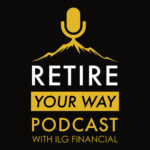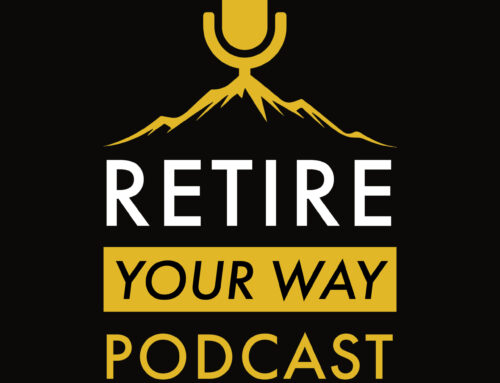
Article published by Entrepreneur.com
Written by Jordan Bishop
“It’s no secret that retirement can be expensive. It’s why we spend (or should spend) most of our productive life planning and preparing for it so it doesn’t become a financial nightmare. But even with the best-laid plans, some unexpected expenses can pop up and throw a wrench in your budget. That’s when we think, “If only I had known this could happen, I would have saved more to have enough for my dream trip to Italy.”
“While unforeseen expenses are only unexpected until you know they can show up, we frequently forget about some of them and neglect to factor them into our plans and our budget. For example, most credit cards will charge a fee once a year, so it’s easy to forget about them until they show up on your statement. Other credit cards spread the annual fee in monthly installments, making these expenses far easier to manage. However, the same cannot be said about most unforseen retirement expenses. These usually end up as a part of our emergency fund in case of a rainy day. That’s why having a list of commonly forgotten expenses you should look out for is vital for retirement planning.
“By the time you finish this post, you’ll be better prepared to tackle more than just a rainy day, and you’ll know if your emergency fund is enough to get you through retirement stress and worry-free.
1. Unexpected home repairs and maintenance.
“No matter how well-maintained your home is, something will always need to be fixed or replaced as you (and your home) age. From a new roof to a broken water heater, these expenses can really add up. And if you’re on a fixed income, it can be tough to cover them without dipping into your savings.
“You should consider that, as we age, there will be more and more chores and home repairs that we cannot handle ourselves. Hopping on a ladder to clean the gutters in a two-story home may be something we’re comfortable with in our thirties or forties, but it’s not worth the risk when we’re over 65. Many retirees count on their children or grandchildren to help them out with these types of chores. However, this isn’t an option for some, so they’ll have to pay someone else to help them out, adding more expenses to their budget as time passes.
“In addition to everyday tasks and chores like the ones mentioned above, which add up over time and slowly but steadily creep up your budget, there may be some major one-time expenses to look out for. Fixing a broken roof is one example, but you may also need to make major changes to accommodate new health conditions. For example, if, for whatever reason, you end up in a wheelchair, you may need to make a general overhaul of your home to improve accessibility across the board. That means adding ramps to complement or replace steps, possibly adding a stairlift if your house is two stories high, etc. These expenses can strain your budget to the breaking point but are necessary.
How to minimize these expenses
“One way to offset these expenses is by making any repairs and improvements before retirement, so they don’t come as a shock when you’re on a fixed income. Adequate home maintenance is critical, as is having an engineer do a checkup of your house before you retire to identify any critical areas that may need attention.
“If there are improvements or repairs you know you’ll need to make, try to do them little by little so it’s not such a shock to your budget when retirement comes. For example, if you know that in 10 years, you’ll likely need a new roof, start setting money aside now so you’re not hit with the full expense all at once.
“Another way to reduce this type of expense is to consider downsizing to a smaller home or an apartment when you retire. This can significantly reduce your maintenance and utility expenses while still living comfortably in retirement.”
Click here to read the remainder of this article.























 Megan Jones joined the ILG Financial team in 2020 as marketing director. Megan and her husband live in Fredericksburg, VA with their German Short Haired Pointer, Gus. Megan is a graduate of Longwood University and holds a degree in communications. Megan is the oldest of Dave Lopez’s three children and not only enjoys working alongside her father, but also with her cousin, Chase, who joined the ILG Financial team in 2020 as an advisor. Megan is also a fully licensed Life, Health, and Annuity agent. When not at work, Megan enjoys sitting on the back porch with family and friends enjoying food and music.
Megan Jones joined the ILG Financial team in 2020 as marketing director. Megan and her husband live in Fredericksburg, VA with their German Short Haired Pointer, Gus. Megan is a graduate of Longwood University and holds a degree in communications. Megan is the oldest of Dave Lopez’s three children and not only enjoys working alongside her father, but also with her cousin, Chase, who joined the ILG Financial team in 2020 as an advisor. Megan is also a fully licensed Life, Health, and Annuity agent. When not at work, Megan enjoys sitting on the back porch with family and friends enjoying food and music. Chase Lopez joined the ILG Financial team in 2020 as an advisor. Chase is a 2016 James Madison University graduate with a degree in management. Chase has been trained under the tutelage of Dave Lopez, who is not only the founder and managing member of ILG Financial, but also is Chase’s uncle and godfather. He also enjoys working alongside his cousin, Megan, who is Dave’s daughter.
Chase Lopez joined the ILG Financial team in 2020 as an advisor. Chase is a 2016 James Madison University graduate with a degree in management. Chase has been trained under the tutelage of Dave Lopez, who is not only the founder and managing member of ILG Financial, but also is Chase’s uncle and godfather. He also enjoys working alongside his cousin, Megan, who is Dave’s daughter. Amy Anderson joined the ILG Financial team in 2023 as the client relations coordinator. Her responsibilities include scheduling of appointments, annual check-up notifications, and annuity and required minimum distribution assistance. She is a graduate of Harding University with a degree in Computer Information Systems. Amy and her husband have two children and she enjoys reading, crocheting, music and spending time with her family.
Amy Anderson joined the ILG Financial team in 2023 as the client relations coordinator. Her responsibilities include scheduling of appointments, annual check-up notifications, and annuity and required minimum distribution assistance. She is a graduate of Harding University with a degree in Computer Information Systems. Amy and her husband have two children and she enjoys reading, crocheting, music and spending time with her family. Jessica Carson joined the ILG Financial team in 2018 as an agent. Jessica and her husband have four children, two dogs, 3 barn cats, 5 chickens, and three parakeets. She indeed loves her children and pets! When not at work, Jessica enjoys playing the piano and cello as well as traveling and spending time outside with her family, hiking, fishing, and boating.
Jessica Carson joined the ILG Financial team in 2018 as an agent. Jessica and her husband have four children, two dogs, 3 barn cats, 5 chickens, and three parakeets. She indeed loves her children and pets! When not at work, Jessica enjoys playing the piano and cello as well as traveling and spending time outside with her family, hiking, fishing, and boating. Terri Center joined the ILG Financial team in 2019 as client services manager. She handles client records, application processing, and gathering information to provide a professional and friendly experience with all of our clients. Terri is a graduate of Oakland University. She is married and has two children. She enjoys hiking, family time, and puzzle challenging video games. She also likes to share her creativity in her canvas paintings and sewing projects.
Terri Center joined the ILG Financial team in 2019 as client services manager. She handles client records, application processing, and gathering information to provide a professional and friendly experience with all of our clients. Terri is a graduate of Oakland University. She is married and has two children. She enjoys hiking, family time, and puzzle challenging video games. She also likes to share her creativity in her canvas paintings and sewing projects.